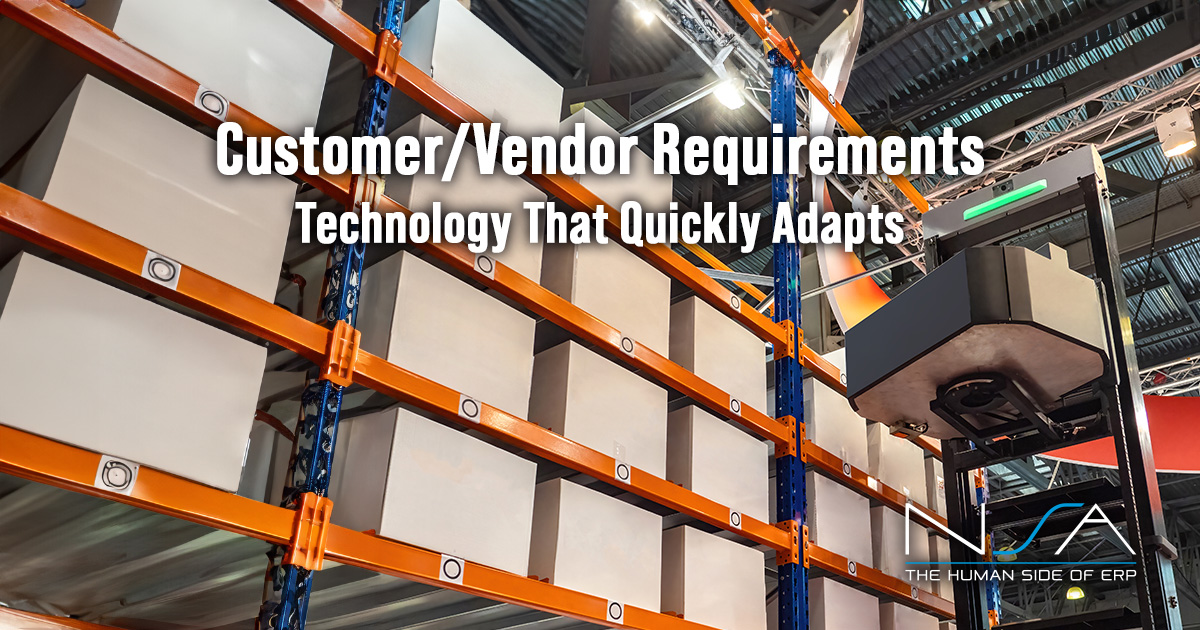1. HOSTED OR SELF-HOSTED
If you think that you need high-level customization and full control over your online store, you can go for self-hosted eCommerce platform. Otherwise, a hosted eCommerce platform would suffice your requirements.
In the case of a self-hosted eCommerce platform, you require having a team of web developers who can design and develop your website from scratch. Moreover, you need to manage web hosting on your own. One example of self-hosted eCommerce platforms is – Magento.
Whereas, a hosted eCommerce platform comes with the domain, design templates, and shopping cart management. All you need is to subscribe to their hosting package. That’s it. Some examples of hosted eCommerce platforms are Insite, Easy-Ask, or Infor’s Rhythm.
2. PRICE
If you are planning to launch a new store or own a small scale online business, high investment on an eCommerce platform can be a burden to your business. With hosted platforms, you need to pay monthly subscription charges, whereas you can save on expenses like domain name registration, hosting, design & development, etc. Self-hosted platforms may be a higher investment compared to hosted platforms, but if budget is not an issue, this can be the right choice for you.
3. FEATURES
Have you ever purchased a mobile phone with many features but not even half of them are useful to you? Same happens with an eCommerce platform.
If you have chosen an eCommerce platform with the features which are not applicable to you as per your business logic, then you are wasting your hard earned money.
There are many eCommerce platforms available from basic to advanced features. First, you need to research the features these eCommerce platforms provide.
Determine the features which you would be actually using and also the features which would help you in providing the best customer experience on your online store. Based on that research, you can choose the right eCommerce platform for your online store.
4. INTEGRATIONS
You may agree to the fact that alone, an eCommerce platform cannot run your online business. You require API integrations, extensions, plugins, etc., to get your required tasks done. Fortunately, if you are on a current version of SX.e (version 10 or higher) or CloudSuite Distribution, you have the API’s needed in your ERP, but there are other applications to consider.
For example, if you are selling on Amazon along with your own Magento store, you must be able to integrate your Amazon and Magento store with an inventory management software. That would help you in managing your orders, shipments, suppliers, etc., from a single dashboard.
Does your online store integrate with maximum payment methods? If you want to increase sales and accept payments from even international customers, your store needs to be ready for accepting payments in different currencies also. The eCommerce platform you choose should be able to integrate with the required APIs or software in order to get the functionality you require for the success of your online store.
5. PRODUCT CATALOG MANAGEMENT
As a distributor, many companies manage thousands of products. Your eCommerce platform should be compatible with your existing product data and resources. If you have an unlimited list of products to display, you need an eCommerce platform which can accommodate all.
Also, managing your product catalog becomes hassle free if your eCommerce platform allows you to import your existing data from another platform or marketplace easily.
Select an eCommerce platform which makes product catalog management easy and hassle-free for you.
6. USER FRIENDLY/INTUITIVE
If you are new to eCommerce business, the user-friendliness can be a major deciding factor for you. An eCommerce platform rich in features and functionality would not be of great help to you if you don’t know how to use them and likewise for your eCommerce customers using it.
The eCommerce platform you choose should be easy to use so that you can setup and update your store without any technical support. If this is not the case, the maintenance cost for your online store may increase and profits decrease. For example, changing the template of your online store as per a recent holiday season should be easy for you so that you can keep your store updated and competitive.
7. TEMPLATES
The design of your online store plays a major role in converting your visitor to your customer. People usually don’t trust and buy from poorly designed websites.
Not everyone can afford to hire high profile web designers to set up an attractive and appealing online store. This is where inbuilt templates within an eCommerce platform can be useful.
Some eCommerce platforms provide attractive templates to choose from. All you need is to just select the template and customize it according to your business logic.
8. eCOMMERCE SUPPORT
Before you select an eCommerce platform, you need to check the level of customer support that is provided. You may require help at any point of time while managing your store. Tutorials can help you up to a certain level. But, a query beyond that requires a human to help.
The eCommerce platform you choose should be providing customer support 24/7 through email, phone, and chat. This would be convenient for you to manage your online store.
9. SECURITY
The biggest challenge eCommerce stores are facing these days is acquiring the trust of online shoppers. People would never like to give out their payment details to the online store which they perceive to be insecure. You need to check that the eCommerce platform you choose supports HTTPS/SSL to ensure secure checkout for your customers. Also, it should be compliant to PCI (Payment Card Industry).
10. SCALABLE
Being an eCommerce distributor, you should be aware of the extent your business could grow in the future. Your eCommerce platform should be scalable enough to accept the changes in your business and grow along with. For example, if you increase your product categories your eCommerce platform should be scalable enough to accept that change. If this is not the case, you will have to migrate to another eCommerce platform and that can be expensive.
11. MOBILE FRIENDLY
If your online store is not mobile-friendly then you might be losing out on many customers which purchase products using their mobile devices (tablets and phones, both iOS and Android).
As per Statista, the average value of the online orders placed from a Smartphone amounted to 146.12 USD in the 4th quarter of 2019.
Select the best eCommerce platform which supports responsive web design features in order to provide excellent mobile user experience to your customers.
12. MARKETING
How would you get traffic to your online store if it is not marketed properly? In that case, you need to ensure that your eCommerce platform can…
◆ Support latest SEO plugins
◆ Integrate with social networking platforms
◆ Add blog to your website
◆ Facilitate customers to leave product reviews
◆ Send emails and newsletters to your customers
Also, you need to ensure that your eCommerce platform can enable features allowing you to offer discount coupons, gift cards and different promos to your customers.
The growth of your online business is possible only if your eCommerce platform meets your marketing needs.
Finally, all the features above need to translate into detailed reporting and analytics. To plan your future marketing strategy, you need to have access to analyze the present situation of your online store. How many products sold this month? Which product was maximum sold? The answers to these questions can be fetched only if you have access to accurate reports.
Ensure that your eCommerce platform provides you with the data which can help you in managing and marketing your online store in such a way that it is ready to face future business challenges.
SUMMARY
After going through all the above items which determine your choice of an eCommerce platform, ask yourself some questions…
◆ Which products are you selling?
◆ How many products do you want to display?
◆ How much are you willing to spend on your eCommerce platform?
◆ Are you planning to expand your product line in the future?
◆ Through which payment modes are you ready to accept payments?
◆ Do you require high-level customization in your online store?
◆ Are you migrating your store from one platform to another?
The answers to these questions will help you in determining your needs relating to an eCommerce platform and help you in choosing the best.



